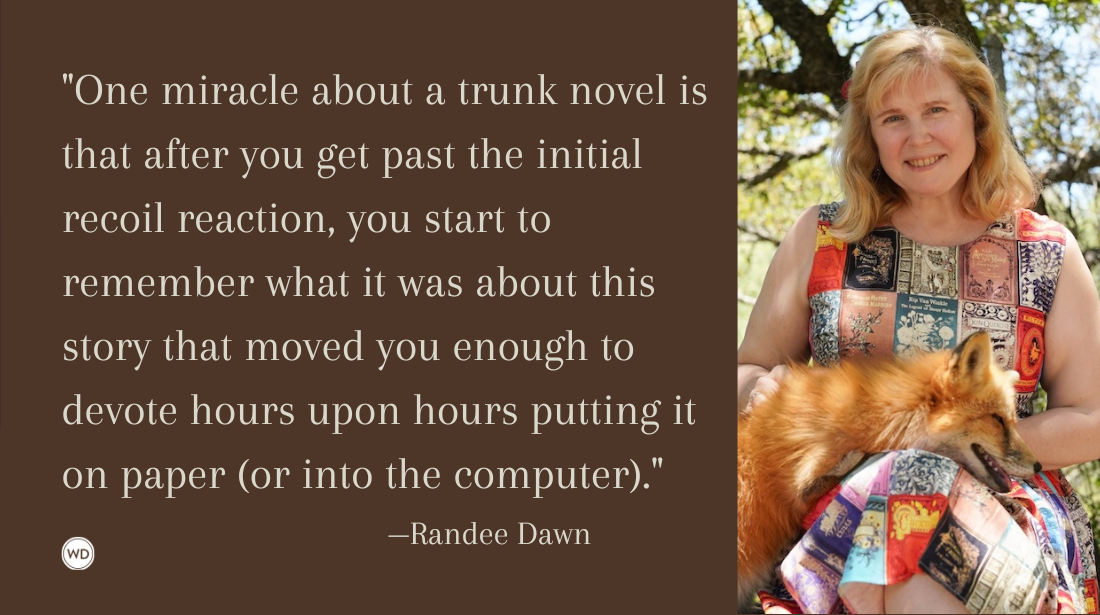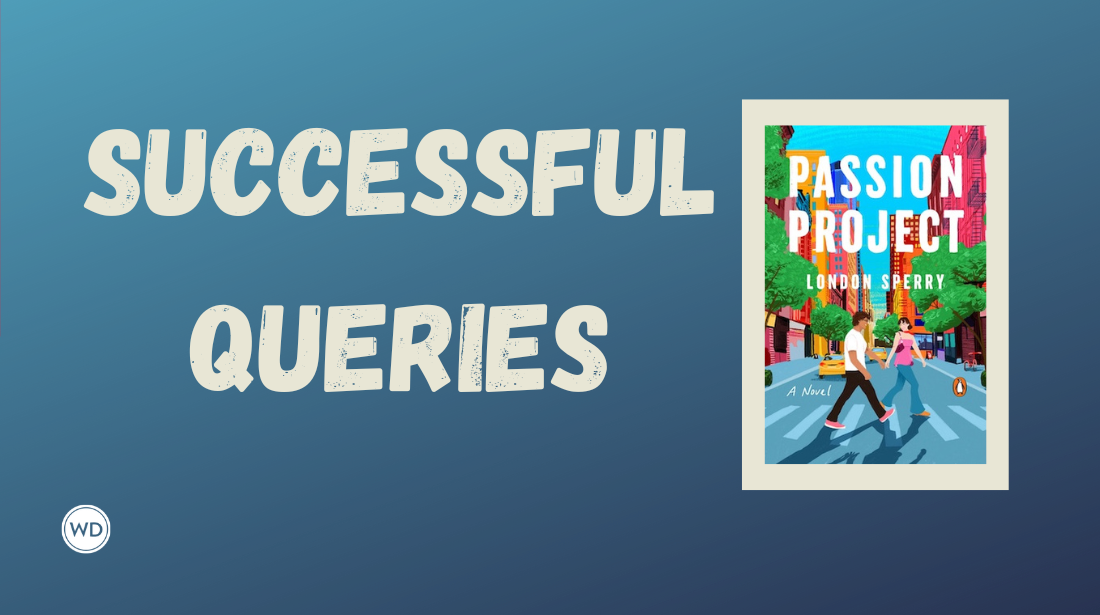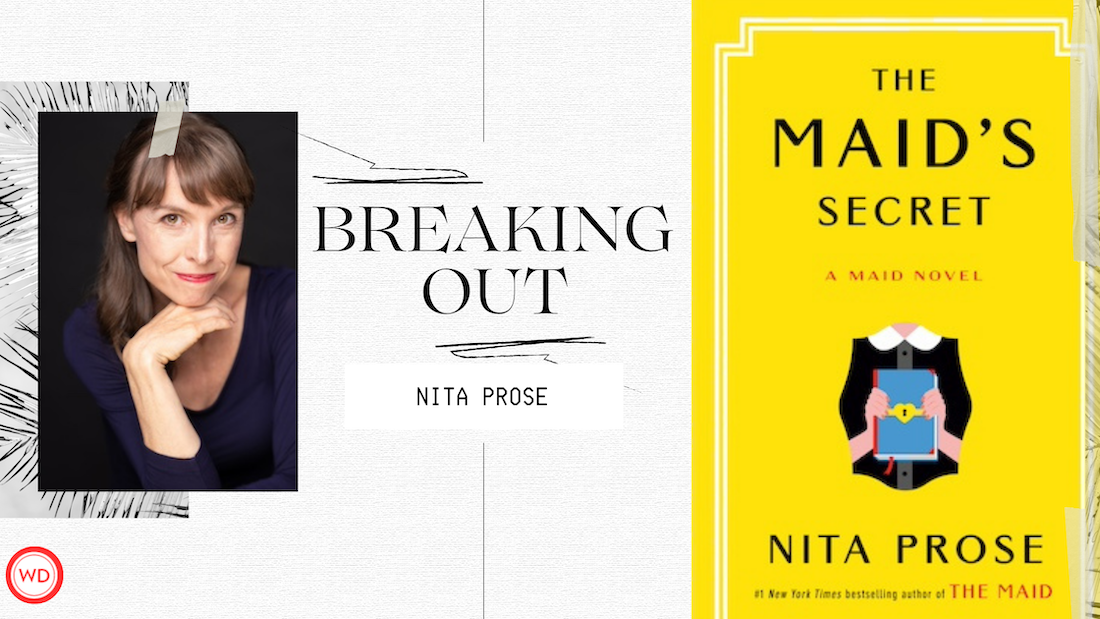6 Reasons to Turn Down a Writing Opportunity (Even One That Pays)
Freelance writer Debra Johanyak shares six situations when it might make sense to turn down a writing opportunity (even when there’s money involved).
Ah, there it is—an email offering a writing gig that sounds too good to be true.
It just might be! But why turn down a writing opportunity? You’ve been around the (writer’s) block and earned your stripes. Any decent-paying gig is worth the effort, right?
Not in my book, figuratively and literally. In my freelance writing journey, I’ve experienced missteps, wrong turns, and dead ends. If only someone had warned me about the potential hazards! Here are pitfalls I encountered and how I’ve learned to avoid them.
1. The project is inadequately planned or unorganized.
Writing a history and promotional book for a wildlife conservation agency was a tempting lure. But although I was offered an all-expense paid trip to the African nation to meet staff and tour the facilities, with good pay, I couldn’t travel at that time. The director sent copies of newsletters and agency records with a promised future interview.
From the materials, I developed a book outline and the first few chapters, which the ultra-busy director rejected, saying they too closely replicated the original documents. I thought she wanted the media material reframed for the book’s background. Lacking clarification, guidance, and the long-awaited interview, the project fizzled.
A comparable situation involved a retired woman who recorded her memoir assisted by an adult niece. In their audio file conversations, the pair disagreed about dates, names, and events so that little progress was made despite my numerous questions. We parted ways after I recommended they organize an outline for the memoir’s future development.
Lesson learned: I should have realized the projects were beyond my capabilities. I knew what the clients wanted but was unclear on how to develop their stories. The authors weren’t sure what to include, and I was at a loss to collect the relevant information. Now, I decline projects that require skills or material I don’t have. Or I request materials like diaries, letters, photos, and interviews to develop the content.
2. The project is too demanding or time intensive.
I often schedule phone calls or video consultations with prospective clients to discuss the project. These meetings give an idea of how our personalities “click” for clear communication and reliable cooperation. My discussion summary notes help to determine the project’s length, tone, and style before getting started. I typically decline projects without this preliminary information.
Some people at first describe their project clearly, leading to a signed agreement. But soon, they stray from their original idea, forcing us to change the book outline and revise the completed chapters. This requires extra time and cost that frustrate clients and me, so I emphasize from the start that we need a specific scope of work for the project.
One author decided to expand his book beyond the contract length, and pay for it, but the extended timeline would disrupt my other projects. The revised idea required additional research and planning. I was paid for my work to that point, and the client agreed to reassess his ideas and develop a new plan before moving forward.
Lesson learned: From the start, I ensure that new clients clarify and commit to their project specifications. If the description seems fuzzy or unwieldy, I help them establish structure and order to complete the writing assignment on time and on budget. Those who aren’t sure of their target may doom the project to failure.
3. The pay is not worth the workload.
Clients often request weekly telephone check-ins to discuss progress. These can range from 15 minutes to an hour or more. Recording the call to listen again may be useful, but it requires additional time and possible transcription. One client wanted me to interview a dozen sources around the country, but limited information was gleaned from these persons. A client may have grandiose ideas to enhance the project and ignore the writer’s advice that such information will require more time but won’t add much value.
Lesson learned: While estimating a project, I calculate weekly time and information retrieval. I request clients to send organized, readable material. Scribbled handwritten notes or disordered documents are frustrating and require extra work. I estimate the fee accordingly or reject the project if it appears time intensive and minimally beneficial.
4. The client is uncooperative or overly critical.
Sometimes clients only have ideas and are not ready to develop the project, and the writer’s suggestions are rejected. Or the topic might represent an insensitive or inflammatory viewpoint. Another problem is a client who communicates infrequently.
Busy or uncommitted people can disappear indefinitely. When we finally reconnect, we must review and revise the previous work. By then, the client might have forgotten the book’s premise and need coaching to get back on topic—only to disappear again.
Despite my credentials and experience, a few clients have disagreed with my editing corrections, saying they want the project to read “as is” despite improper grammar, faulty diction, or flawed punctuation. A business manager dismissed me for using the word “supply” in a perfectly suitable way because he felt it was too “informal” for his company handbook. (I am a certified business and technical writer.) A company CEO refused some grammar corrections (like a possessive apostrophe) in his business book and insisted on maintaining his personal style!
Lesson learned: I now include a checklist for new clients that includes diction and style preferences with a disclaimer that I am not responsible for rejected corrections, explaining the style and conventions typically used. I do not accept projects from clients who cannot accept those terms.
5. The subject matter is questionable, unethical, or immoral.
As freelancers, we all have different values and standards. I’ve accepted projects that seemed fine at the beginning but discovered in subsequent content the use of controversial language, violence, sexuality, or prejudice. Stories about difficult experiences like drugs or prison have revealed incidents I never expected (or wanted) to encounter! Some projects introduce perspectives that I or certain publishers may find objectionable. I suggest ways of revising graphic content while maintaining the story arc, character description, or event impact. I reject projects based on content I don’t want to work with.
Some people write a memoir as a confessional. A senior lady’s life story dragged her ex-husband’s reputation through the mud. She ended disparaging chapters with something sweet like, “But he was a great kisser” possibly as an antidote! I suggested she might want to revise harsh sections for their grown children’s sake, and she toned down some revelations. When the book was published, she expressed regret over the critical content and apologized to her ex, who forgave her. Not everyone is as forgiving to find themselves criticized in print!
Lesson Learned: In negotiations with clients, I clarify boundaries about topics I work with. For sensitive issues involving morals, relationships, and finances, I remind people that once published, books, speeches, and other documents often cannot be recalled or edited. I urge careful consideration of content that might lead to regret, hurt, or defamation charges.
6. Writing scams.
Swindles victimizing freelancers are spiraling. Yet, some mishaps are unintentional. Understandably, sometimes a person cannot pay a writer to complete the project due to an unexpected financial strain. Others stop paying (I use a three-step payment structure) for various reasons, and that’s fine if my completed work is paid. I don’t accept future projects from previous non-paying clients unless they had a valid reason.
I was almost swindled by a LinkedIn scammer who contacted me about writing a presentation for a medical conference in Chicago. As always, I checked the person’s name and employer online, and it matched a well-established European company. The potential client offered a handsome sum by overnight mail if I could expedite the project for completion in two weeks. I agreed. The next day, she contacted me again and offered to double the payment for two presentations—similar but for different conferences. Busy with other projects, I agreed and signed a professional-looking Agreement and scanned it to her, which was signed with a copy returned to me.
The next day, an overnight packet arrived with a check for the amount promised—but no attached letter, invoice, or other document. I checked the return address—a non-English name in Texas. I inspected the originator of the check—a construction company in Minnesota. Bingo! Rechecking the original information online that was likely stolen, it still appeared valid. I typed in the contact person’s name and employer while adding the word “scam” afterward—Bingo again! Another writer had posted concerns about the same alleged person but had not received payment. I emailed the person in Europe whose identity was stolen but did not hear back.
I assumed that if I deposited the check, the crooks could hack my account while their check bounced. I contacted the local sheriff, and he advised against depositing the check, indicating such scams were prevalent.
Lesson learned: I’m extra cautious about accepting writing work from unknowns. I double- and triple-check contacts and cross-reference sources. I often work with agencies that vet incoming projects and collect up-front payment. This precaution is working well.
Writer scams are increasing. The Authors Guild published a helpful article on December 6, 2024, about freelance writer scam reports: Publishing Scam Alerts - The Authors Guild
Bottom line:
Freelancers need clarity about what to do—and how to do it. Likewise, writers should provide explanations about services, restrictions, and fees while also requesting information when needed. Detailed descriptions and clear communication help to establish a meaningful process for a successful project.
Debra Johanyak is a freelance writer based in the Midwest. Writing is her passion and lifestyle with reading fiction and nonfiction a close second. She enjoys using her experience to help other writers dodge pitfalls and hone their skills. In addition to publishing several books and articles, she has assisted authors in the U.S. and abroad to prepare manuscripts for publication.








